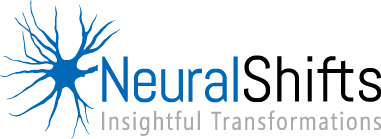In my work in Diversity and inclusion, I see many companies adopting a one-sided approach to solve the challenges. For instance, they may choose to focus on gender equity, or disability or race but not all. My assumption is that the complexity and lack of resources lead them to focus on what they can chew. But inadvertently, they are perpetuating the same challenges they are trying to fix. We can’t honestly drive diversity and inclusion at the expense of excluding other groups.
In my view, employing a one-sided approach is like trying to solve the Diversity & Inclusion problem with the same thinking that created by racing the needs of one group above the others.
Also, it has real consequences like the resistance we see from the white majority which contributes to our slow progress. See the comments below on a recent campaign launched by IBM.


Take for instance the lack of gender representation in high-tech environments. Advocates for gender equity talk about equal representation, but at the same time engage in the same practice that the large majority is accused of. It’s common now to see only female or people of color panels. People wonder how is this done in the name of diversity? Don’t get me wrong, these initiatives are needed but with a balanced approach ensuring that we model what we preach “inclusion.” I truly believe that there is space for all of us to walk together and not alone.
Dr. Martin Luther King in his famous
“I have a dream speech” wrote: “for many of our white brothers, as evidenced by their presence here today, have come to realize that their destiny is tied up with our destiny. They have come to realize that their freedom is inextricably bound to our freedom. We cannot walk alone.”
When I think of diversity, I pictured integration, not segregation. I see across the human spectrum with black, brown, white, LGBTQ, people with disabilities all represented. I acknowledge there is a need for our voices to be brought to the front lines but not at the expense of exclusion.
Another area that I find quite interesting is fostering inclusive workspaces. Many of the efforts go into telling employees to “Be brave” and “Speak up.” Yes, that sounds good in theory but not in practice. Research on the science of speaking up has shown that there are real consequences for those who speak up. Employees who speak up are more likely to be rated as poor performers than those who keep quiet. The media is also full of tales that dissuades anyone from speaking up.
Let’s imagine you are in a product review meeting, where your manager encourages anyone to give feedback. And you are the brave soul who speaks up, telling the manager that the product needs more work is not ready for shipping. But your manager is dealing with time constraints and the possibility of demotion for not having the product ready. He is more likely to interpret your voice as a threat to his credibility and questioned your loyalty to the team’s success. The outcome of such a threat is simple you get rated poorly on your performance review.
How can we shift this?
Start with the culture of the team. Examine the social norms of your team. Are those who speak up ridiculed, ignore or prevented from speaking up? If the answer is yes, do not allow this behavior. Set the expectation that everyone should speak up and be respected whether in private or public.
Teach managers to embrace the pain that comes from being challenged and to acknowledge that they are here to learn from everyone. #growth mindset in action.
Remind managers to reward employees for speaking up. Managers should publicly thank the employee who raises a concern. More importantly, the manager should act upon the feedback received when appropriate. It is a powerful validation that the employee voice matters and a great indicator of inclusion.
Lastly, train managers on responding to challenging voices as opportunities to see their blind spots. Managers must raise their self-awareness on getting emotionally trigger by a challenger and respond with “Tell me more” “Explain how you see this challenge?” Great managers are feedback seekers who are constantly in pursuit to widen their view and drive growth.
Are you caught on this paradox? There is not such a thing as simple solutions to complex problems. I’d love to hear how would you approach this.




0 Comments